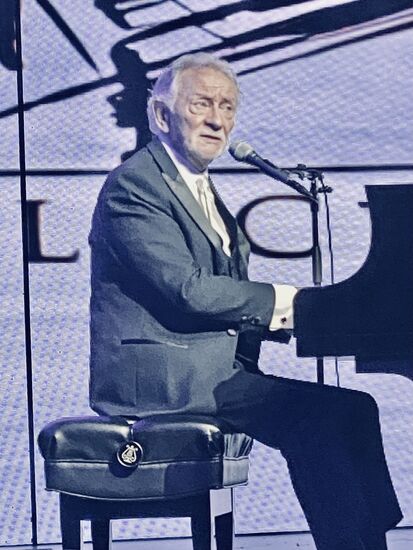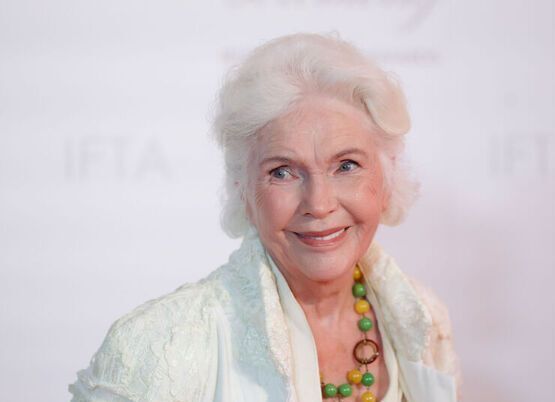Civil War-era drummer boys. LIBRARY OF CONGRESS
By Patricia Mansfield Phelan
Genealogists will tell you that one of the satisfactions of researching their family’s history is discovering relatives who, sadly, had gone out of the family memory. My father’s great-uncle Joseph Mansfield was one of these forgotten ancestors. It has been my privilege to rediscover him and add him to an honored place on our family tree.
During the American Civil War, “drummer boys served as a communications link between a commander and his soldiers. Officers couldn't shout loud enough for 800 men to hear amid the din of battle. But those soldiers could all hear a pounding drum. Reveille, taps, assembly, chow—all the routines of camp life were announced on the drums. So were marching and drill commands as well as battle commands. Drummer boys marched into the thick of battle, armed only with their drumsticks and courage.” So wrote Kendall F. Haven in “Voices of the Civil War.”
Drummer boys were often sleep-deprived. In “The Civil War Drummer” by R. Murphy, “at any time [they] might be needed to play the appropriate drum call. This meant being awakened at any hour and not being able to return to sleep for many hours. Once the men were assembled and deployed to a particular engagement, the drummers would lay down their drums and take up stretchers, act as runners between outposts, or do whatever was necessary to help the unit. Many tales of heroism have been told about these young lads.”
My ancestor Joseph Mansfield was one of these courageous young men. Born in Manhattan’s Lower East Side in August 1845, Joseph was a first-generation Irish American. His parents, Catharine Collins and William Mansfield, were both emigrants, William from Kilgarvan, Co. Kerry, and Catherine likely from County Monaghan. Theirs was an interfaith marriage, and so within a few weeks of his birth, Joseph was baptized twice—once in an Episcopal Church and once in Nativity R.C. Church on Second Avenue.
Shortly before his 6th birthday, Joseph’s mother, Catherine, died at the age of 32 of peritonitis, leaving behind her husband, William, and three young children. A year later, William remarried, to Ellen Collins, who was very likely a relative of his first wife.
Joseph was educated at the Old Fifth Street School—Public School No. 16 on Fifth Street in Manhattan—first enrolling there in 1853. When the first shots of the Civil War were fired in April 1861, Joseph was 15 years old and thus too young to join the regular ranks. But that didn’t deter him. On June 14, giving his age as 16, he enlisted as a musician—a drummer boy—in Company K, 25th Infantry Regiment. He would not see his home or family again for at least two years.
Joseph’s regiment was known as "Kerrigan's Rangers" after its leader, Col. James E. Kerrigan. According to civilwarintheast.com, in March 1862, the colonel would be “dismissed by sentence of general court-martial for inefficiency and of conduct unbecoming an officer in the gross neglect of his military duty, ‘as manifested in the disorganized and disgraceful condition of his regiment.’” Nevertheless, the soldiers of the 25th went on to serve with distinction at many major Civil War battle sites, including Hanover Court House, Gaines’s Mill, Malvern Hill, 2d Bull Run, and Fredericksburg. By the summer of 1863, a total of 90 of the regiment’s men were dead—61 had been killed or later died from their wounds, and 29 had been lost to disease. Many more suffered wounds from which they recovered.
Drummer Joseph survived his time at war, although he was said to have contracted a disease that would eventually lead to his death. He was mustered out with his company on July 10, 1863, and six months later he had the heartbreak of losing his father, William, who died of pleurisy at age 48.
According to one source, Joseph reenlisted and served until 1865, but the available records neither confirm nor deny this. After completing his military service, Joseph returned to his family home on the Lower East Side, and soon he was employed as a drug clerk and then as a clerk in the post office.
Active in politics, he joined the local Republican Assn., served as secretary of the Irish Republican Assn. of the 12th A.D., and in 1870 was elected to represent that group on the County Committee of the Irish Republicans. In 1872, he was an alternate delegate to the Liberal Republican state convention in Syracuse. The Liberal Republicans supported civil service reform and civil and political rights for African Americans. Opposed to the Reconstruction policies of the incumbent president, Ulysses S. Grant, they gave their support to Horace Greeley, editor of the New-York Tribune.
Joseph also belonged to John A. Rawlins Post No. 80, Grand Army of the Republic (GAR), a fraternal group for veterans of the Civil War. Not only did the GAR provide camaraderie, but it was also one of the first special-interest groups in U.S. politics. It favored giving black veterans the vote, giving pensions to veterans, and supporting Republican candidates for office.
GAR posts generally took part in Memorial Day—then known as Decoration Day—ceremonies and activities. On May 29, 1875, the Irish American Weekly reported that on Decoration Day the members of Rawlins Post 80 were to join the veterans of the Fighting 69th at Calvary Cemetery in Queens, New York, to decorate “the graves of the Irish-American sailors and soldiers who fell in the late war.” Joseph was likely among the men laying wreaths.
Joseph fell ill in early 1878, and on June 20, 1879, after an illness of eighteen months, he died of pulmonary tuberculosis. He was only 34 years old. Two days later, his funeral was held from his residence, 737 East Ninth St., where he had lived with his stepmother Ellen, his sister Mary, and his brother, my great-grandfather Charles Mansfield. He was buried in Calvary Cemetery next to his father.
The Civil War service of the young drummer boy was not forgotten. Joseph's death notice in the New-York Herald invited the members of his GAR post to attend their fallen member's funeral. At the time, the GAR often employed elaborate ceremonies for post comrades who had died. Someone from the post delegation would read the GAR funeral ritual. The members of the post would accompany the deceased’s family to the cemetery, where the GAR service would be conducted. A firing party would fire a final tribute to the soldier, and a bugler would play Taps. Floral tributes would decorate the burial place, and the GAR would lay a wreath. Finally, an American flag would be put on the grave.
In the GAR post’s hall, a bible would be draped in crepe, and at the next post meeting a chair would be left vacant to show that a comrade had died.
The year Joseph died, Congress passed a law requiring the government to erect headstones for Union soldiers interred in private cemeteries. These headstones were to be identical to those in U.S. military cemeteries. Although government records show that a headstone for Joseph’s grave in Calvary was contracted for in 1896, there is no stone on the plot, and it is not known if one was ever erected.
In “The Dead Drummer Boy,” published in 1860, an unknown author wrote:
But more than this, what tongue shall tell his story?
Perhaps his boyish longings were for fame.
He lived, he died; and so memento mori.
Enough if on the page of War and Glory
Some hand has writ his name.
I believe these words serve as a fitting tribute to Joseph Mansfield, who served the Union armed only with his drumsticks—and his courage.
© 2020 by Glanvil Enterprises, Ltd. An earlier version of this article appeared in the Newsletter of the Irish Family History Forum.








